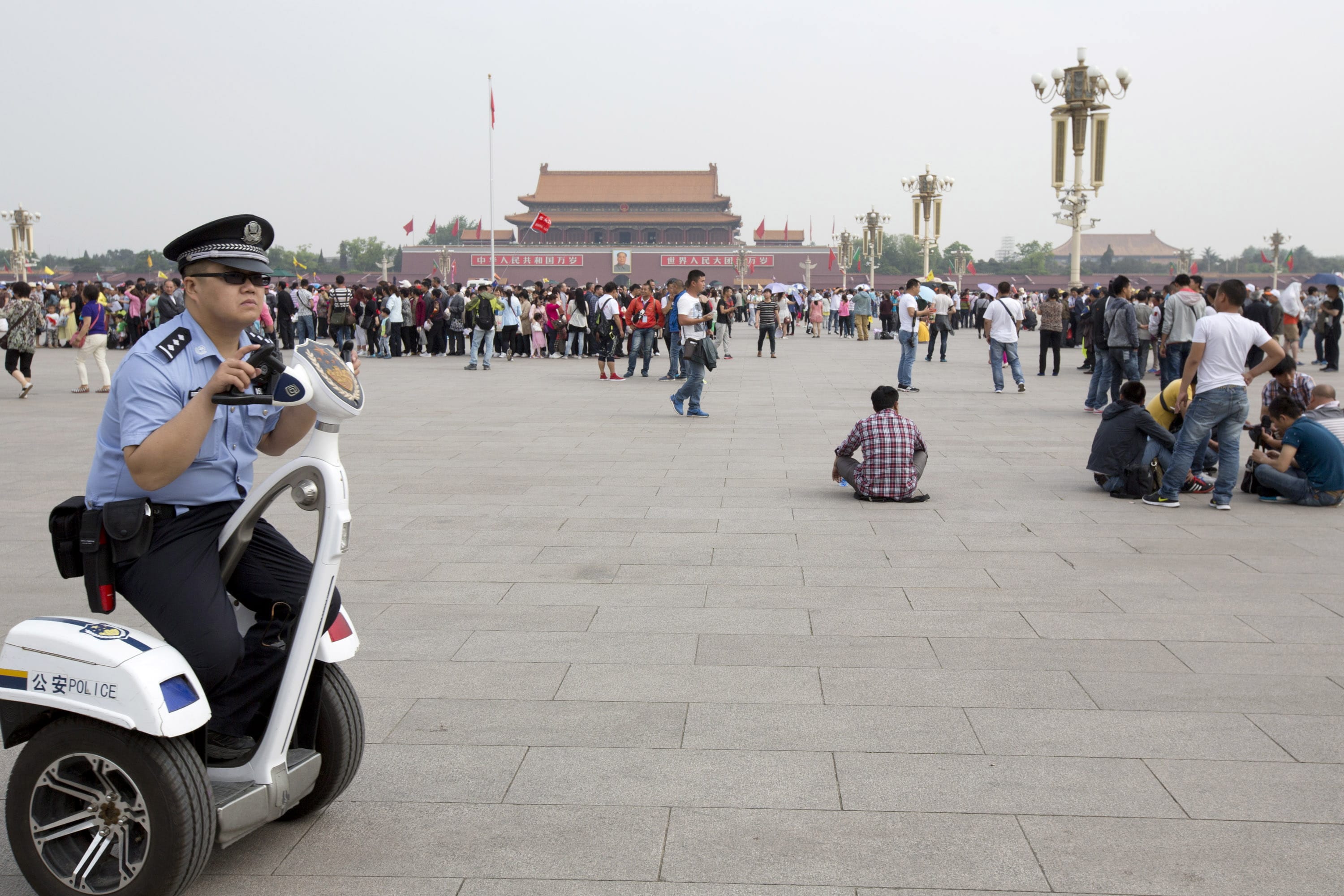BEIJING — When visiting friends in China’s capital, environmental activist Wu Lihong must slip away from his rural home before sunrise, before the police officers watching his home awaken. He rides a bus to an adjacent province and jumps aboard a train just minutes before departure to avoid being spotted.
In a neighboring province, veteran dissident Yin Weihong finds himself hauled into a police station merely for keeping in touch with old friends from the 1989 Tiananmen Square pro-democracy movement. While he’s technically a free man, the treatment makes it virtually impossible to keep a job or have a normal home life.
A quarter century after the movement’s suppression, China’s communist authorities oversee a raft of measures for muzzling dissent and preventing protests. They range from the sophisticated — extensive monitoring of online debate and control over media — to the relatively simple — routine harassment of government critics and maintenance of a massive domestic security force.
The system has proven hugely successful: No major opposition movement has gotten even a hint of traction in the 25 years since Tiananmen. President and Communist Party leader Xi Jinping seems intent on ensuring things stay that way.
“It’s extremely bad right now, much worse than in past years,” said Yin, who spent several months in prison for his role as a student leader during the 1989 protests. “There’s less and less space for civil society or, if you’re like me, even to just live your life freely.”
Each year’s anniversary brings a crackdown on dissent, but this year has been especially harsh, say dissidents and human rights groups. Lawyers and others taking part in even minor private commemorations have been detained. Outspoken relatives of those killed in the crackdown have been forced out of Beijing.
Journalists, including those in the foreign media, have been issued stern orders not to report on unspecified sensitive topics around the June 4 anniversary, with warnings of dire consequences.
Caught unaware and unprepared by the Tiananmen protests, China now anticipates, detects and chokes off political and social activism before it can challenge authorities. Despite a huge rise in prosperity and vast social changes, political activism and organization outside the control of the ruling Communist Party is strictly verboten.
“The authorities are very careful to nip any potential dissent in the bud at the local level, the focus being on ensuring they can’t link up and become a nationwide movement,” said Human Rights Watch Asia researcher Maya Wang.
Yin said China’s rights conditions have deteriorated since party stalwart Xi Jinping’s appointment as general secretary in late 2012. While going after corrupt officials, Xi has demanded strict ideological orthodoxy and pushed a campaign to denigrate liberal values such as Western-style constitutional democracy and the independence of the media.
Government critics and public intellectuals face ever-more-intrusive harassment, Yin said. Liu Xia, the wife of imprisoned Nobel Peace Prize winner Liu Xiaobo, is under house arrest and constant supervision. An unknown number of others can leave home or work only with permission.
Some veteran activists say the room for independent organization is tighter than it was in 1989. A limited number of nominally non-governmental organizations are permitted, but they operate only at the pleasure of the authorities and must confine themselves to non-political issues such as environmentalism, child welfare and workers rights.
Meanwhile, the state has developed increasingly sophisticated mechanisms of surveillance and censorship, taking advantage of technological improvements and a huge boost in domestic security spending. An army of young, computer-savvy censors checks social media and websites and removes content on sensitive topics.
Many foreign websites are blocked, including news outlets and Twitter, Facebook and YouTube. Most Chinese appear content with the Internet that the government allows.



